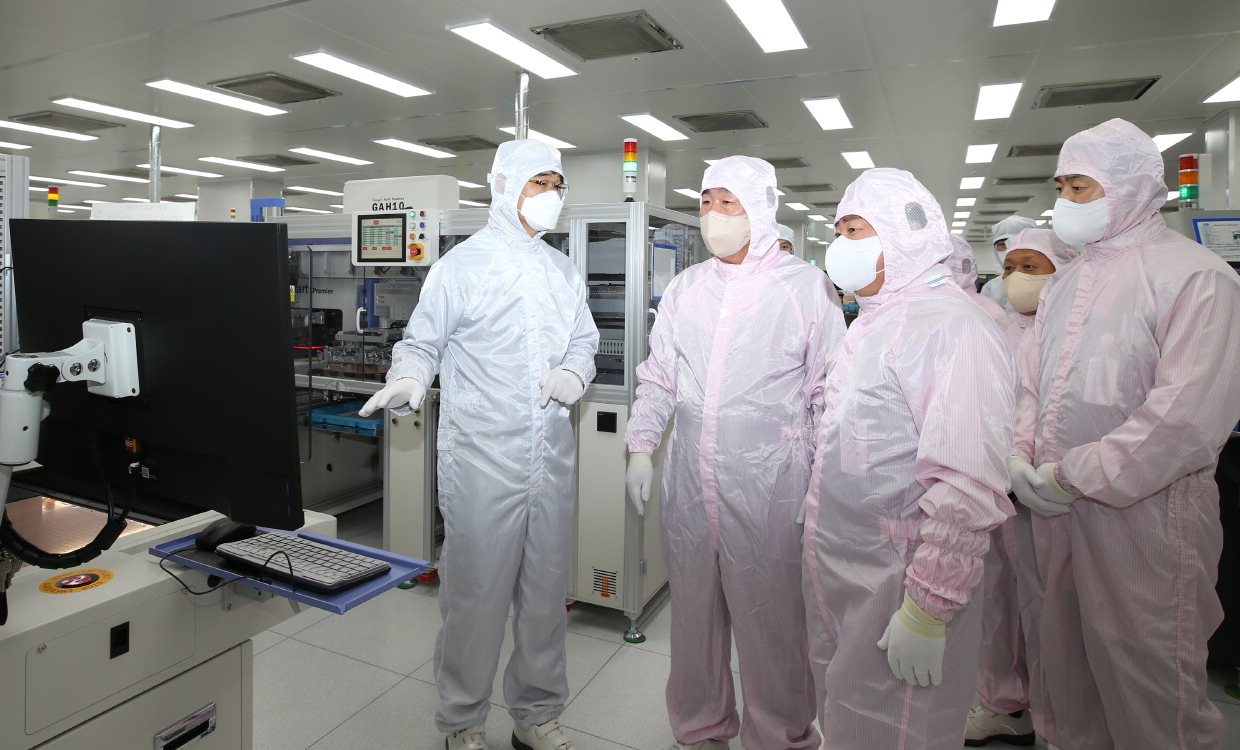
-advertisement-
Twenty small and medium-sized manufacturing companies in South Korea will build autonomous factories by incorporating artificial intelligence (AI) and digital twins into their operations. This initiative aims to improve production efficiency by enabling real-time monitoring and control of processes, as well as predictive systems based on virtual experiments. The goal is to optimize production conditions, prevent defects, and mitigate safety hazards.

Mayor Lee Beom-seok of Cheongju City visited SIMMTECH and toured the product manufacturing process and the newly completed ninth factory with CEO Kim Young-gu
The "2024 Autonomous Factory Construction" project, launched on July 11th, will provide each company with up to 600 million won (300 million won per year) in funding over a two-year period. The project aims to standardize data information within factories and utilize this data to build AI and digital twin systems, creating a self-governing manufacturing environment with minimal human intervention.
The data used for AI training and digital twin development will be standardized based on international standards (AAS, IEC 63278-1), ensuring seamless connectivity between on-site processes, equipment, and virtual representations.
Among the 20 selected companies, three are located in the Chungcheong region: Coavis Co., Ltd. (CEO: Son Ik-sun) in Sejong, A-tech Solutions Co., Ltd. (CEO: Yu Young-mok) in Chungnam, SIMMTECH (CEO: Kim Young-goo) in Chungbuk. SIMMTECH (222800.KQ), specializes in manufacturing PCBs (Printed Circuit Boards) for semiconductors, currently lacks standardized process and equipment data, making data collection and analysis challenging. This reliance on worker experience has led to product errors, inefficiency, and difficulty in identifying defect causes.
Through this project, SIMMTECH expects to improve real-time quality data analysis, detect anomalies and predict quality using digital twins, and prevent accidents by leveraging AI-based control systems for worker, equipment, and risk monitoring.
Lee Dae-hee, Director of the Small and Medium Enterprise Policy Division at the Ministry of SMEs and Startups, stated that autonomous factories represent the highest level of intelligent (smart) factories. By integrating AI and digital twins into highly advanced, data-driven smart factories, companies can achieve optimal production, real-time control, improved quality, reduced defects, and safer working environments. While this may be a challenging endeavor for SMEs, the Ministry will continue to provide policy support to encourage more companies to automate their production processes and promote the spread of autonomous manufacturing.
Editor:Lulu
▼▼▼
AMD Plans to use glass substrates in its 2025/2026 lineup of high-performance processors
HB Technology's new businesses progressing well, company addresses disclosure discrepancies
Peng Shen Technology signs cooperation agreement with five leading educational institutions
The world's first glass substrate factory is about to start mass production
+86 191 9627 2716
+86 181 7379 0595
8:30 a.m. to 5:30 p.m., Monday to Friday
